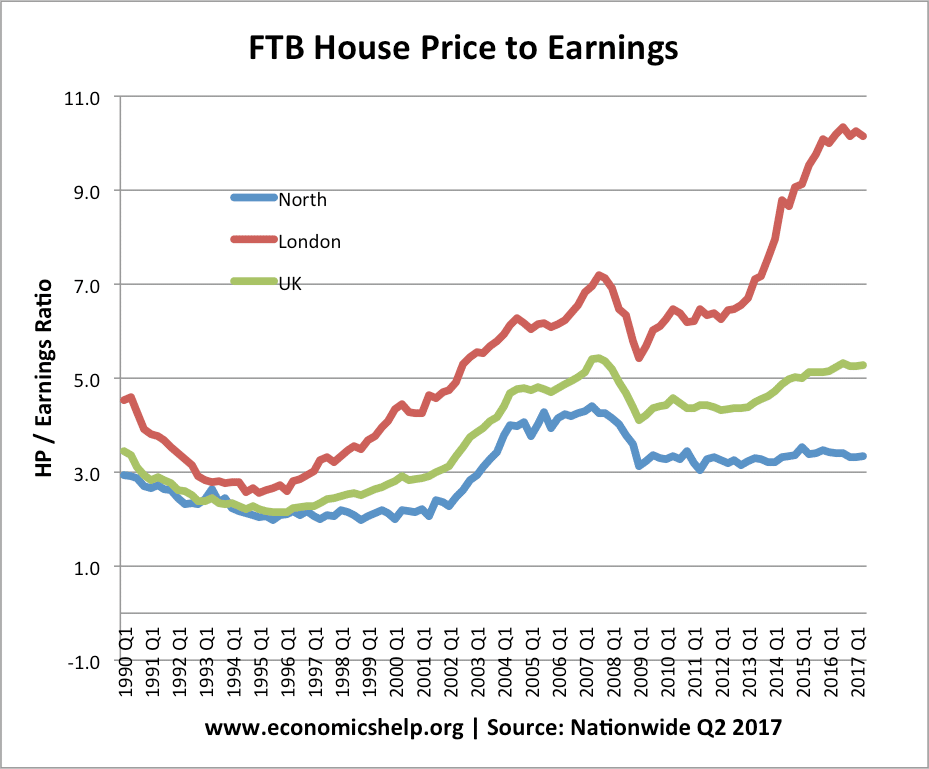WWJD (what would Jobs do)?
Is Apple out of ideas? Plus the usual tech & venture news.
Hi folks, Patrick Ryan here from Odin. We build powerful tools for VC’s, angels and founders to raise and deploy capital seamlessly. We work with over 100 angel syndicates and VC firms across Europe, Asia and the USA, and over 700 founders have used Odin for fundraising in the last 2 years alone.
Last Week’s News is our weekly newsletter - the lazy way to find out what's happening in tech & venture, with enough analysis thrown in to sound smart at dinner parties.
Headlines
WWJD?
I don’t think it’s contentious to say that Siri is shit.
So it is interesting to see that Apple is once more in discussions with OpenAI about using their tech to power some of the AI features in the next iOS update (iOS 18). They’ve also been chatting with Google about using Gemini.
Apple has been conspicuously quiet in the AI frenzy. As reported last week, we know they are poaching talent from Google, but they are yet to release anything interesting product-wise. As the dominant player in consumer hardware in the Western world (>50% mobile phone market share in North America and Europe), with one of the strongest globally recognised consumer brands, one might reasonably argue Apple has an unprecedented opportunity to ship something that fundamentally reimagines the way we interact with technology, and instantly put it in the hands of over a billion people worldwide. Plus, the closest competition was recently declared the worst product ever made.
However, it seems like Apple are really struggling to do AI in-house, due to a combination of lack of experience, talent, and training data. Outsourcing this to OpenAI or Google derisks things, but so far the whole approach doesn’t feel very Apple. Apparently the new iOS will include a mixture of Siri-type features built on Apple’s in-house LLMs and other “chatbot” functionality built on GPT4 or a similar product. Hardly game changing stuff.
I feel like the first Steve Jobs AI release from Apple would have rocked our world.
At the moment that doesn’t look to be the case.
In fact, their whole innovation track record really sucks at the moment. iPhone sales are stagnating too.
Is Apple out of ideas? Maybe.
The Chip Wars heat up
As the FT reports, “the Biden administration has revoked export licences that allow Intel and Qualcomm to supply Huawei with semiconductors as Washington increases the pressure on the Chinese telecoms equipment company.”
The US are particularly worried about Huawei, China’s flagship tech company. There have been ongoing spying allegations, and you may remember that there was a lot of debate about whether or not to roll out their 5G infrastructure in a number of western countries (including the UK) for this reason.
In 2020 the Trump administration blocked Huawei’s ability to fabricate the chips it designs with TSMC, the world’s leading chipmaker. Huawei made a bold move and struck a deal with China’s state-backed SMIC (Semiconductor Manufacturing International Corporation), which is one of the Chinese government’s key bets sin reducing reliance on US-controlled firms like TSMC. SMIC had a mammoth task ahead of it:
“To build Charlotte, SMIC would have to grapple with an advanced process it was not familiar with and new restrictions on acquiring and managing complex equipment. One chip company executive close to SMIC likened it to “measuring an elephant in the dark.”
But in late 2023, Huawei unveiled a brand new phone with cutting edge SMIC-manufactured chips that rival anything you’ll find in an Apple or Samsung device. Security advisors in the US are baffled as to how they are managing this. If they can make great mobile phone chips, the concern is that they will also be able to make advanced AI GPUs, with or without the latest lithography technology from the Dutch firm ASML.
The Chinese government have rifled money into these two companies in the last few years, and will likely to continue to do so.
The plot thickens.
For more on the background to the Chip Wars, see last week’s post.
Other bits
Layoffs in big tech continue, with similar trends in both China and the USA / Europe. Investors seem pretty happy about this.
The Chinese self-driving firm Momenta, which is backed by General Motors, is reportedly planning an IPO in the USA.
Jack Dorsey has left Bluesky, the decentralised Twitter competitor he founded. Network Effects are hard to fight with.
Global Founders Capital, the $1B german venture firm spun out of Rocket Internet, will no longer raise external LP capital and will simply invest from Rocket Internet’s balance sheet. It seems like a tricky fundraising environment plus plenty of balance sheet capital have made this an easy decision.
Fundraising
Dry Powder
🌎 The Americas - more mega-funds and some smaller vehicles
ICONIQ, the growth firm that span out of a family office serving the elite of Silicon Valley and Hollywood, has raised a $5.75B fund VII. We shared a great piece by Akash Bajwa on Iconiq a couple of years ago - check it out here. Fascinating firm.
Norwest Venture Partners, a 65-year-old manager backed solely by Wells Fargo, has raised its 17th fund of $3 billion, just 2.5 years after raising a similarly sized fund. It is global and multi-strategy with a focus on North America, India and Israel.
Not a fund announcement but there are rumours that the VC equivalent of the Avengers / Traveling Wilburys (depending on your preferred pop culture reference) is forming, with former partners from a16z, Bessemer and Index involved.
Chicago-based Hyde Park Ventures closed fund IV ($98m, seed)
OpenAI’s startup fund quietly deployed $15m via an SPV recently. No news on what it was.
The Department of XYZ, founded by a former employee of the US Department of Finance, has raised $5.1m for a regulation-focused crypto fund.
🌍 Europe & Africa - nothing huge but some cool smaller stuff
Semiconductor & nanotech specialist 🇧🇪 Imec Xpand (Belgium) have raised a second fund of €300m.
In Germany, 🇩🇪 Armira Growth Fund I was announced, a €200m vehicle for tech and tech-enabled scaleups.
Hugo Amsellem and Etienne Boutan announced 🇫🇷 Intuition, a €15M early-stage fund backing founders focused on consumer & culture. I had a really interesting chat with Hugo a while back - you can check out the conversation here.
Ex-Monzo commercial director Gideon Valkin is launching 🇬🇧 Andrena Ventures, a $12m seed fund
🌏 Middle East & Asia: big Singapore climate fund, lots of activity in India
🇸🇬 Temasek (Singapore sovereign wealth fund) closed a joint venture with Blackrock on a $1.4B clean energy vehicle called Decarbonization Partners.
🇮🇳 India has had a raft of announcements this week, with a mix of closes and announcements of planned funds from Ivy Capital Fund III ($250m, generalist early stage), Stride Ventures Fund III ($165m, venture debt), Eternal Capital Fund I ($14.5M, seed), Oister Global Pinnacle Fund ($52M, generalist multi-stage) and VC Grid Fund ($107M).
🇨🇳 I’m not currently covering China, but plan to soon!
Big Startup Rounds
🇺🇸 Cloud GPU scaleup CoreWeave has raised $1.1B at a $19.1B valuation in a round led by Coatue, with participation from existing investor Magnetar, along with Altimeter Capital, Fidelity Management & Research Company, and Lykos Global Management. We’ve seen a number of similar companies growing very quickly and raising significant funds via our platform lately. Essentially these platforms allow developers to quickly and easily access the high quality, in-demand chips needed to handle AI computation via the cloud. Picks and shovels for the AI goldrush.
🇬🇧 Autonomous driving startup Wayve AI closed a $1.05B Series-C led by Softbank, with participation from Microsoft and Nvidia.
🇪🇪 Estonian mobility firm Bolt has secured a €220M debt facility from a ton of investment banks as it revs its engines for IPO
🇺🇸 The aforementioned ICONIQ led wealth management platform Altruist’s $169m Series E.
Best of the Internet
Are foundation models this innovation wave’s telecomms infrastructure?
Funding companies like OpenAI, Elon’s xAI, Anthropic, Aleph Alpha, Mistral, etc. is incredibly expensive. Billion dollar rounds are now table stakes. But are any of these companies going to turn a profit? Or will they end up simply being a low margin commodity layer that valuable companies get built on?
At the moment, most are struggling to generate revenues, as the New York times reports. One is reminded of telecomms infra in the 90s - a lot of capex with very poor ROI, but a ton of great software companies built that wouldn’t have existed without it.
I thoroughly enjoyed this piece from Benedict Evans, which points towards something similar: Currently there don’t seem to be any killer apps for LLMs themselves “while at the same time there’s a ‘Cambrian Explosion’ of startups using OpenAI or Anthropic APIs to build single-purpose dedicated apps that aim at one problem and wrap it in hand-built UI, tooling and enterprise sales, much as a previous generation did with SQL.”
I guess the question is whether everyone ends up building on one platform (like OpenAI), turning it into an iPhone equivalent, with high lock-in and high rents, or whether there are lots of competing platforms vying for market share and making low margins (like telecomms providers). There doesn’t seem to be very strong evidence for network effects in foundation models at the moment, so perhaps the latter case is actually quite likely.
Porcelain Thrones
A two century old Japanese pottery manufacturer is the picks and shovels AI play you’ve never heard of - they produce the best ceramics to cool data centres apparently.
Lonely and worried
People get married way less and they’re mostly concerned rather than excited about AI. 16 fascinating findings from the Pew Research Centre’s 2023 surveys.
Build more houses
The cost of housing relative to wages has increased 1,500% in London, 800% in Dublin, 480% in Sydney and 362% in New York in the last ~40 years. It’s basically the only thing not getting cheaper, and it is the main reason Western economies are stagnating. Not only does this lack of housing reduce productivity and innovation, it also drives inequality, climate change, obesity, and even explains falling fertility rates, argue John Myers, Sam Bowman & Ben Southwood.
This is an older piece, but I enjoyed it so much I felt compelled to share! If the solution to our problems is this simple, LFG. I hope the Labour party are taking notes.
The world is magical
Go seize the day
Thank you for reading! If you enjoyed this hit the like, and if you didn’t please do drop me some feedback.
PR












Honestly, one of the best researched and well-written newsletters out there. Love reading this!